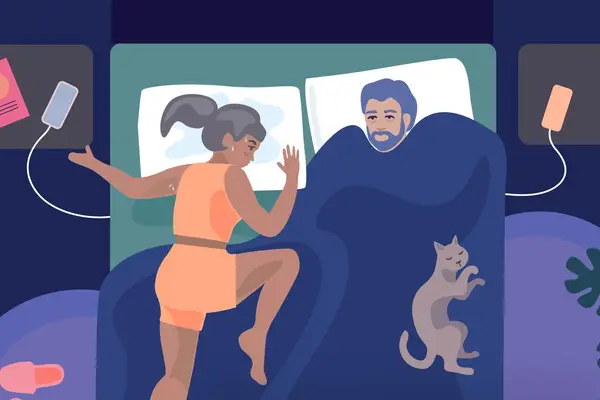Here's a more-than-common scenario in my house: Dinner is over, the table is cleared. The dishwasher is silently humming, the kitchen is officially closed and it's time to finally sit back and relax.
We head for the couch and settle back into our respective spots (creatures of habit are we) to enjoy a television program or read a book. We exhale. It feels good; that moment of complete surrender, when you can finally brush off the day's craziness.
And then it happens. Directly. In. My. Left. Ear.
Will you please stop cracking your knuckles??
That sound—it irritates me so. It makes me want to scream, stomp my feet, grab his hands and crush them.
That's just my misery—the knuckle cracking. For another, it might be the sound of someone munching popcorn. And for someone else, a person popping their gum can drive them into fits of fury.
Have you ever sat at the movies and had to contain yourself from reaching back and yanking the candy out of someone's hand when that person noisily starts opening their Raisinets? How dare they!
Yeah, that.
It's called misophonia, and its literal translation is "hatred of sound." People with the condition are especially sensitive to background sounds or noises, with each person having their own set of symptoms and triggers. A sound that someone else might not notice at all can elicit feelings ranging from mild irritation to all-out rage and panic.
Snap, crackle … PUNCH! (as in, "I want to reach out and punch you!")
The New York Times published an essay last week on the subject, in which the author, Barron H. Lerner, MD, admitted to suffering from the condition. "At times, my patients can be the source of annoying sounds," he wrote. "At other times, the condition can be a source of special bonding if I realize that a patient is a fellow sufferer." (Those poor patients. Or those lucky patients. Take your pick.)
Dr. Lerner cites a 2013 study that identified the most common irritants to be:
- Eating sounds (including lip smacking and swallowing)
- Breathing sounds (such as nostril noises and sneezing)
- Hand sounds (such as typing and pen clicking)
I've been guilty of yelling at my (poor, suffering) husband for all of the above. But now, I feel vindicated!
Now I'm happy to say I'm not alone. Just knowing it's a "condition" and not a sign that I'm horribly impatient, short-tempered or intolerant makes me smile with relief.
By the way, if you wonder what drives other people crazy, after Dr. Lerner's essay appeared, The New York Times did a survey among their fellow misophonic-suffering readers to share their stories of what drove them crazy. Here are the top five complaints:
- Knuckle cracking
- Soup slurping
- Gum chewing
- Nail clipping
- Nose sniffling
Fear not, fellow sufferers: there is actually a support group out there for people like us.







